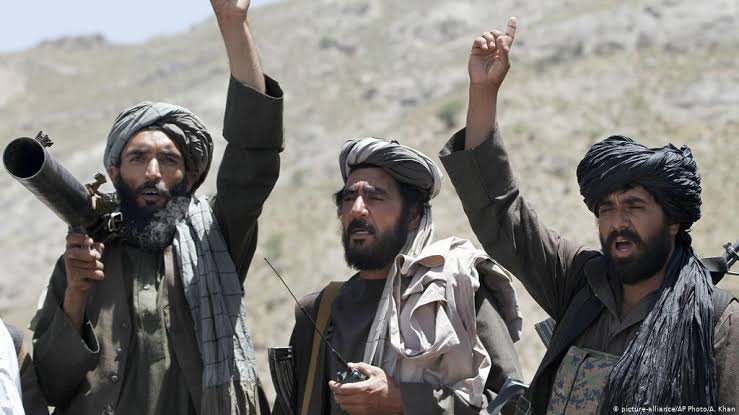“Reason is, and ought only to be, a slave of the passions, and can never pretend to any other office than to serve and obey them.” – David Hume
Nestled between the peaks of the Hindu Kush mountains and located at about an hour north of Kabul, is the Bagram Air Base. An impregnable fortress and home to America’s largest military base in Afghanistan. At the peak of the US military campaign against Taliban insurgents, the place looked like a little America tucked in the belly of the rugged terrain of the Afghan desert. The Base was a beehive, complete with American fast-food franchises like Popeye and Burger King.
For twenty solid years since 2001, Bagram Air Base was the place US servicemen and their Afghan counterparts trained and plotted to take on the most daring mission against the Talibans, levelling out mountains and destroying caves. One faithful morning early this month, however, Afghan soldiers woke up to find that their old friends had left in the dead of the night, without even saying goodbye. According to a CNN report, among the equipment left behind were more than 700 vehicles including, “Humvees, pickup trucks and 4x4s, some still littered with half-eaten American snacks like Oreos and partially consumed soda bottles.”
The last US troops left the base on Friday, July 2nd with President Biden promising a complete withdrawal of all US troops in Afghanistan by the end of August 2021. He plans to leave only a small contingent of soldiers to guard the American embassy in Kabul. The most powerful country on earth after deploying the most sophisticated military force the world has ever known and spending close to a trillion dollars, parked up and left hurriedly. At last came the sad realisation that the war in Afghanistan was simply not winnable. What happened? Well, Russians were the first to learn this, the hard way after fighting the Talibans in a 10-year war that dragged between December, 1979 – February, 1989.
The US fired the first shot of Operation Enduring Freedom on 7 October 2001 and with a coalition of over 40 countries in tow, unleashed unparalleled firepower that sent the one-eyed Mullah Omar, the Taliban ruler of Afghanistan and Commander of the Faithful with his lieutenants parking. It was a move meant to oust the Talibans, whom they said were harboring Osama Bin Laden and other key al-Qaeda elements that masterminded the 9/11 terror attacks on American soil. The war, however, dragged on year after year such that even after President Barack Obama announced the end of Operation Enduring Freedom in Afghanistan after 13 years, on 28 December 2014, Taliban insurgents continued to mount strong resistance, albeit in a guerrilla fashion.
As with every war, things tend to get messy. There were blackmails and intrigues in high places. Pakistan, a country that was supposed to work alongside the US in the war, turned it into a cash cow and showed no interest in helping the US bring the war to an end. It was later discovered that Osama Bin Laden, the most wanted Al Qaeda operative, was hiding in plain sight and lived close to the Pakistani Military Academy in Abbottabad. The relationship between the two countries deteriorated so bad that Americans were conducting raids inside Pakistani soil with the nation’s government blindsided. As the war dragged on, Americans in the homeland started getting tired and inpatient as dead bodies of young men were brought home, wrapped in caskets from oversees. Congress also began to question the government’s war strategies and how long to keep the troops in a foreign soil.
Between 2010 to 2012, the cost of the war in Afghanistan grew to almost $100bn a year. That was the time when more than 100,000 American soldiers were stationed there. As the number of troops were drawn down, the cost got a little lower but never less than $40bn a year.
According to a report made available to Congress by a senior Pentagon official, when you add the total spending from October 2001 until September 2019, including payout to Pakistan to support the war effort, the total amount was $822bn. This is much lower than what was reported in a study looking at war spending, commissioned by Brown University in 2019 where the number was $978bn, though it included the budget for 2020 fiscal year.
To put things in perspective, the National Assembly approved the Nigerian government’s 2021 budget of 13.6 trillion naira ($35.66 billion). That means that the US at some point was spending an equivalent of three times the Nigerian budget every year fighting a war in a country with a population the size, just a little bigger than southwest Nigeria.
In terms of human toll, since the war against the Taliban began in 2001, US forces have suffered more than 2,300 deaths and around 20,660 soldiers injured in action. Of course, Afghan casualty was much worse.
I did not wake up this morning feeling like a Plato, Socrates, Archimedes or determined to wax philosophical. But I am forced into deep introspection as to how a rag-tag and poorly-funded army was able to defeat two biggest super powers. It turns out that passion anchored in a deep belief, could survive even a nuclear attack. Even though prosecuting a warped and toxic ideology, the Talibans are convinced beyond doubt that they are on the correct path ordained by their creator and so very determined to resist any power that could derail them in that mission.
They were chased out of power, carpet bombed, killed and utterly dismembered. Their leadership was decapitated, and yet, they persisted, waited it out and prevailed in the end. Again. You could say that there is still a secular Afghan government in place at the time of this writing but the mere fact that we got to a point where the US is now negotiating with the Talibans, was in and of itself a huge victory for the group. In war, your enemy is only willing to negotiate when victory is not within sight.
Have you ever wondered why citizen-driven (not military coup) revolutions akin to the Arab Springs often fail to materialise in Africa, even when the continent plays host to the largest contingent of political criminals than elsewhere? A Nigerian will look at how #EndSARS protesters got shot and decides that it makes more sense to sit back and watch others take the lead. Somehow, he came to believe that Nigeria’s salvation lies with everyone else but himself. Of course, he knows that such revolution is necessary but what is lacking, is the passion to follow through.
Katharina Paxman, a professor of philosophy at the University of Western Ontario, believes that all actions, reasonable or unreasonable, are dictated by passion. Her belief draws heavily from the work of David Hume, a Scottish philosopher of the 18th century. In one of her presentations titled ‘Reason and the Passionate Mind’ she augured that, “Reason can’t tell us what to prefer, it is only once we have a propensity or aversion towards something that we can use reason to direct our action, and this requires passion.”
Many centuries ago, there wouldn’t have been anything sane or logical about conjecturing a 3-ton man-made bird with a huge payload floating 30,000 feet above sea level, yet on 17 December 1903, Wilbur and Orville Wright flew their first powered flight in the beach town of Kitty Hawk, North Carolina. Today man has not only conquered the skies and the cosmos, but has ventured into the outer space, pushing the frontiers of science close to the realm only reserved for gods. That is the power of passion.
Between reason and passion, it is difficult to make a case of superiority of one over another. Reason is overly cautious, weighs the pros and cons of an intended action which is truly required of a rational mind. However, it often subjects the mind to analysis paralysis. Passion on the other hand runs on steroid, pushing one to overcome the inertia of inaction, but on the other hand, could operate well beyond the boundaries of rational thoughts. Passion when unattended to, is like a flame that could burn to its own destruction. That was almost the case with the Talibans.
In her book, “Hume, Passion, and Action”, Elizabeth Radcliffe contends that Hume is right to suggest that passion and reason are not mutually exclusive. They both are necessary to ignite people’s motivation. As it turns out, however, passion not tanks is how wars are won and lost.
•Dr. Agbo, a public affairs analyst is the coordinator of African Centre for Transparency and Convener of Save Nigeria Project. Email: [email protected]





